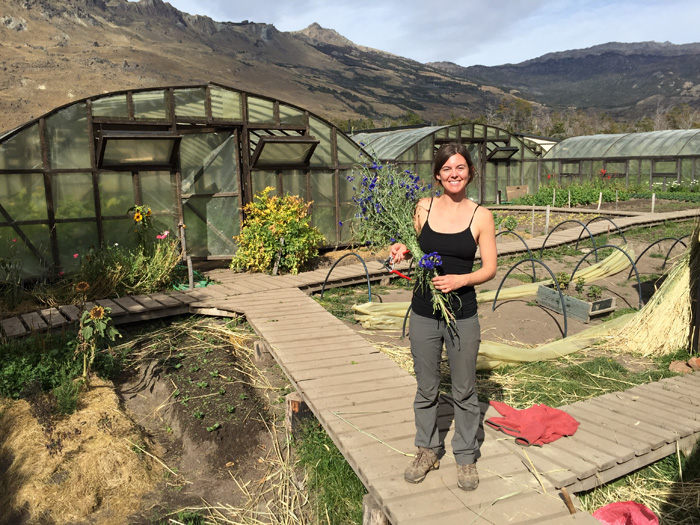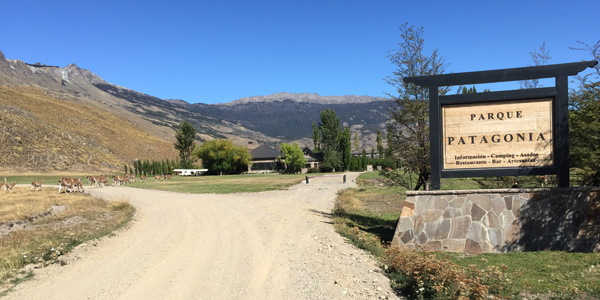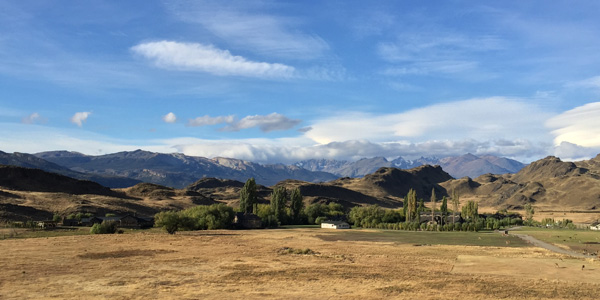Cultivating Perspective in Patagonia

Two months ago I found myself alone on a local bus in Chile, heading south. I was on a mission to make the world stop turning. The Carratera Austral, or “Southernmost Highway,” is a mainly dirt road that extends almost 800 miles, running through Chilean Patagonia’s most sparely populated region. Constructed only 30 years ago, the road slices through some of Patagonia’s most untouched and wild lands. Watching the scenery roll by, I had a feeling of nostalgia for a place and time that is actually impossible to reach. Perhaps this is what Montana or Wyoming would have been like in the late 1800s, or perhaps what some parts of the Alaskan wilderness must still be like today.

Living in San Francisco can be demanding and arduous. I love my city, but we all live very fast. I work 40 hours a week. I also have another part-time job. I have a network of friends and family I see on a regular basis. I have a volunteer gig. There is always a buzz, something going on, 15 things on my to do list that can never get done. Many of us think that if we slow down, we will miss out on something, and that this frenzy of activities, tasks and experiences is real life, where it’s happening. But I wanted a chance to be cut off from it all and to experience for a moment that void.
To be honest, I didn’t just fly down to Patagonia and hop on the bus one day on a whim—this was a well thought out plan. I had applied for a volunteer program at Patagonia National Park, a Conservación Patagónica project that is nearly the size of Yosemite. At present the land is owned by an American conservationist, Kris Tompkins (the former CEO of Patagonia clothing company). Along with her late husband, Doug Tompkins, she has been in the business of buying property in South America, and working with local and national governments to donate it to national park systems. This land is their latest and greatest effort so far, boasting snowcapped mountain ranges, valleys, pampas, rivers, and lakes, and extending all the way to the border of Argentina. Since the park is still a work in progress—they are still constructing buildings, laying trails, and hiring staff—they have needed help from volunteers to keep the project going.

My personal goals were mainly to spend time in a place I love and contribute my time to a cause I believe in. But I also wanted to slow down my life and gain perspective. My task was to assist in the organic garden, which provides produce to the staff and the lodge restaurant. The garden is part of the park’s sustainability efforts. The lodge and park itself are completely off the grid—they operate their own generators and heat all of the water with wood-fired ovens. Another byproduct of the park’s very off-the-grid theme is terribly slow and extremely inconsistent internet service. In a matter of days I found myself going through technology withdrawals: no email, no Facebook, no news. I could send a text message, but it took around 20 minutes, per message.
So, in many ways I got exactly what I was looking for. My days were filled with weeding, shoveling compost, watering, planting, harvesting carrots, beets, kale, you name it. My attempts to slow down life were working. All I needed to do was show up and physically throw my back into the work. Over three weeks, I watched the sun rise over the mountains every day, I watched the guanacos (wild llamas) go about their lazy business, and I, watched the plants grow, literally.
But in other ways, I realized that I still daydreamt about the same things, the same problems, that I did when I was back home. The world moved on in spite of me, without me. Through the sparse text communication I did have, I learned a friend of mine had her second baby, a boy. There was a terrorist attack in Brussels. The drama of the U.S. presidential election rolled onwards.
At the end of my time there, I realized that no matter what you do, a long vacation or a trip into the middle of nowhere, time stops for no human. It’s impossible and even laughable to think that you can have that kind of control. But I also realized that we all have a choice. We can choose to take a moment out of the day (or if we are very lucky—time out of a year), to watch the sun come up, turn our face to the view instead of the computer, and just enjoy a slow moment. My time in Patagonia gave this gift to me. And now that I am back home, I have a new goal: to translate that concept into my daily, and busy, life.
# # # # #
Natalie Crow, GeoEx Director for the Americas, loves everything about travel, from researching destinations to exploring them in person. She has traveled extensively throughout Central and South America and her passion, regional expertise, and ability to negotiate complicated logistics enable her to plan complicated, customized itineraries.
For more about travel in Patagonia or beyond, contact Natalie at [email protected] or 888-570-7108.

